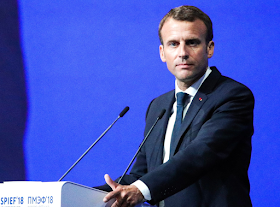Daily Caller
How To Make The National Security Council Great Again
CONTRIBUTOR
November 13, 2019
5:42 PM ET
Very few political problems can actually be solved by Washington’s favorite solution: throwing more money at it. Here’s one that can: the much-in-the-news turmoil on the National Security Council (NSC) staff.
But first, you may ask: what’s the problem? If you interpret the recent spate of anti-Trump leaks and congressional testimony from NSC staffers as “heroic military officers and civil servants standing up to a dastardly illegitimate president,” then clearly you think the current system is fine. But if you think elections should have consequences, that presidents should be entitled to hire people who agree with them, and shouldn’t have to face constant leaking, criticism and disloyalty from their own team, then the problem is obvious.
The NSC staff has two core functions. Fundamentally, its job is to act as a central node and clearinghouse for all national security policy information and deliberation. It’s there to ensure that all participants carrying out American foreign and defense policy understand what that policy is, do what they’ve been ordered to do by the president, not work at cross purposes with one another or send contradictory signals abroad, and keep infighting to a minimum.
Its second role is to provide direct support to the president on foreign and defense matters. When the president wants to send a head of state a letter, the NSC drafts it. When he calls a foreign leader, welcomes one to the White House, or travels abroad, the NSC takes the lead in planning and prepares the briefing book. When he wants to set or change policy, the NSC convenes the “interagency,” shepherds the policy formation process, and presents the president with options. And when the president has decided, the NSC prepares the “decision memo” that directs the cabinet to carry out his directives.
It should be obvious, then, that to fulfill both these roles the NSC staff needs to be well-aligned with the president’s views. Yet if one thing is clear from the impeachment brouhaha, it’s that a great many former and current staffers on the Trump NSC do not agree with his views. Nearly all of the recent leaks and public statements from disgruntled staffers don’t, in fact, allege that the president broke the law or abused his power but rather complain that he’s pursing “wrongheaded” policy. In particular, the opening statement of Lt. Colonel Alexander Vindman, the former NSC “country director” for Ukraine, made clear that his real beef with President Donald Trump was that the president might set a policy “inconsistent with the consensus views of the interagency.
Well, but who’s supposed to set policy? The president, or the “interagency” — which is just a fancy term for bureaucrats? Presidents are elected; bureaucrats aren’t. The entire purpose of elections is to confer a grant of latitude, within constitutional parameters, to make policy according to the convictions of the elected and their voters. Especially in a government as big as the United States’, that’s difficult for any president to do without a cadre of staff committed to those convictions.
Third and most important, the NSC’s budget is tiny — by Washington standards, microscopic. The money available for “direct hires” is small, and most of it goes to permanent administrative staff that doesn’t turn over with a new administration. That leaves very little for hiring “professional” staff — typically the national security adviser himself, his deputy, and a handful of others. That’s it.
It should not shock anyone to hear that the vast majority of career national security officials favor the government line. They after all are the government. This means that in practice they’re mostly liberal Democrats, for liberal Democrats are the party of government and thus government attracts liberal Democrats. Not entirely, of course. There’s also a smallish cadre of centrist Democrats, Republicans and independents rounding out the federal menagerie. But one type you won’t find are serious critics — in either or neither party — of Beltway groupthink. Anti-establishment presidents — anti-establishment Republicans especially — are therefore inherently at a disadvantage under the current system.
That in mind, let’s reconsider the reasons for the reliance on detailees. The first is not bad as far as it goes. But do the benefits of institutional knowledge and career development so outweigh a president’s prerogative to hire people he wants, who agree with his agenda, that the overwhelming majority of the NSC staff should always be from permanent Washington?
Legally, everyone in the executive branch works for the president. But the NSC is the president’s personal national security staff, the people who work most directly for him in the chain of command, who are physically closest to him, who provide him information and material daily, and who are most responsible for seeing that his directives are carried out throughout the vast national security bureaucracy.
A balance could surely be struck. The government being large, there will always be at least a few people within it who are aligned with any president’s convictions. But when the number of detailees the NSC is obligated to hire is well into the hundreds, finding a sufficient number to staff an anti-establishment president is difficult and probably impossible.
The solution is simple: give the NSC more money: say, one or two hundred million dollars (its current budget is not even $15 million). That sounds like a lot to ordinary folk but it’s couch-cushion change in a federal budget that now tops four trillion. The notion that “we can’t afford this” is transparently phony. Money could easily be found to enable the NSC to hire most of its professional staff directly. Detailing could then be practiced strategically, to bring in people who actually believe in and want to further the president’s agenda.
More money could also solve the security clearance issue. Background investigations are conducted by other agencies — typically the FBI — who have to clear personnel for a wide range of positions across the government and whose first priority is more than likely not NSC personnel. Clearances are expensive and time-consuming because investigators have to do fieldwork and their caseloads and backlogs are enormous. Others have proposed reforming the process and reducing the number of positions that need high-level clearances. I’m all for that, but it won’t solve the NSC’s problem — at least not soon. But budgeting for investigators who work directly for the NSC and whose sole task is to clear NSC officials would.
Another simple, and cost-free, reform would be to allow the NSC to “adjudicate” and “hold” — that is, maintain on its own books — the clearances of all its direct hires. Forgive me for getting into the weeds, but this detail is important. To work at the NSC, one must be cleared to TS/SCI, or “Top Secret/Sensitive Compartmented Information.” Under current practice, only the CIA can hold the SCI portion of that clearance for NSC direct hires. What this means is that Langley can disallow a president’s choice for the NSC by denying the SCI portion of his clearance — “Top Secret” alone doesn’t cut it. Theoretically this power is not supposed to be abused for political reasons, but there’s no guarantee it never is. True, a president can overrule a refusal, but that rarely happens, in part because presidents and their staffs know that if they take on the “Intelligence Community,” its well-connected operatives will retaliate with a leak war no White House can win.
But there’s no reason why NSC clearances must be held anywhere but the NSC. In fact, that’s precisely where they were held until very recently, when the Obama administration sent them to the CIA — presumably to give that agency a veto over future NSC staff. That’s an administrative matter that can easily be reversed by order of the president.
Some will no doubt object that these proposals, if enacted, would give the president too much latitude to appoint “unqualified” people. But let’s unpack what that means. If the concern is that people with suspect pasts will be given security clearances they shouldn’t have, remember that the investigators doing the background checks will still be career civil servants — and we’re all supposed to trust career civil servants, right? As government officials, they’re still likely to have typical government biases. But at least their first loyalty will not be to specific agencies with institutional interests in blocking critics, dissidents and Washington outsiders from serving a disruptive president.
Others will voice concern — disingenuously — that without government officials, the NSC will lack sufficient expertise to deal with the world’s complexities. But the proposal is not to deny the NSC recourse to sitting officials; the president could still detail over as many as he wants. It’s to end the practical requirement that he rely almost solely on career staff. More important, it’s arrogant and untrue to suggest that no one outside government has subject-matter expertise or good ideas. There are in fact many foreign policy experts — in academia, think tanks, and the private sector, among other places — who could do these jobs as well or better than career civil servants the president doesn’t know (and who likely voted against him). Indeed, by looking outside the government, the president is more likely to find staff whose views align with his own — a factor which is at least as reliable a predictor of how good they will be at their jobs than their credentials.
To object to a president hiring his own people is tantamount to saying that elections shouldn’t matter. It’s obvious that most of official Washington believes this, but at least until recently, they were reluctant to say it. There is of course an electoral remedy to the problem of a president hiring people you think he shouldn’t: run against him and beat him.
It’s hard not to conclude that the current system is designed to limit presidential — and therefore electoral — control of American foreign policy, to prevent change. But so long as we maintain our ostensibly democratic system, our democratically elected presidents should have the resources to hire people who actually want to help them carry out their Constitutional duties, according to the views that got them elected in the first place.
The core purpose of the NSC is to help the president govern, not thwart his agenda. Let’s make the NSC great again!
Michael Anton is Lecturer in Politics and Research Fellow at Hillsdale College’s Kirby Center in Washington, D.C. He served on the NSC staff from 2001-2005 and 2017-2018.















